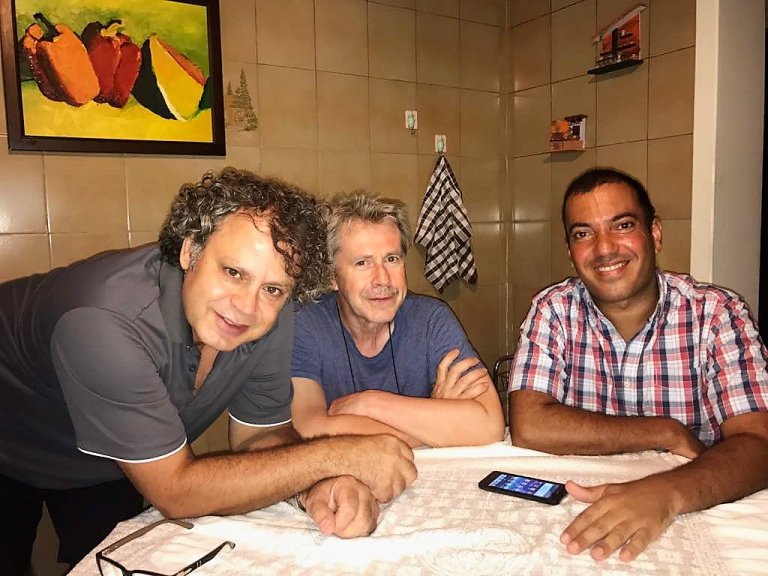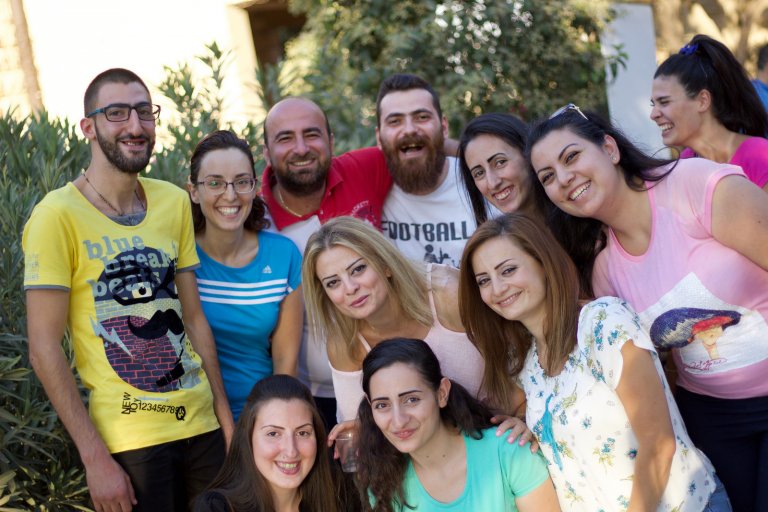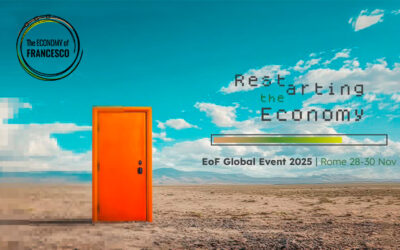 “September flew by. I had taken a taxi with some other people who resided in the town. We we were leaving the city that had welcomed me: Aleppo. I was among the few – perhaps the only – foreigner that had chosen this place for vacation. The taxi crossed the city, an expanse of neighbourhoods completely destroyed. How many dead were buried beneath those ruins? The driver didn’t seem to think about that as he sped along the street that led south in the direction of Homs. From there he would proceed in the direction of Beirut. After two and a half hours we were able to make out the first houses that was left standing. It was difficult to believe. I was welcomed for a month by the Focolare community. When I arrived at the door of a church, someone said to me: ‘Here you will find real Christians,’ words I had never heard spoken before. But now I understand. I saw for myself how the focolare is the place in which everything is shared: the Providence that comes from around the world, with tables full of clothes, and so forth; but mostly the joys and sorrows of daily life… Here, for years, the only support was the Word of the Gospel, the God of love. How the beginnings of the Focolare history returned to my mind, when Chiara Lubich would describe them saying those words that I heard so many times: ‘It was war time and everything crumbled!’
“September flew by. I had taken a taxi with some other people who resided in the town. We we were leaving the city that had welcomed me: Aleppo. I was among the few – perhaps the only – foreigner that had chosen this place for vacation. The taxi crossed the city, an expanse of neighbourhoods completely destroyed. How many dead were buried beneath those ruins? The driver didn’t seem to think about that as he sped along the street that led south in the direction of Homs. From there he would proceed in the direction of Beirut. After two and a half hours we were able to make out the first houses that was left standing. It was difficult to believe. I was welcomed for a month by the Focolare community. When I arrived at the door of a church, someone said to me: ‘Here you will find real Christians,’ words I had never heard spoken before. But now I understand. I saw for myself how the focolare is the place in which everything is shared: the Providence that comes from around the world, with tables full of clothes, and so forth; but mostly the joys and sorrows of daily life… Here, for years, the only support was the Word of the Gospel, the God of love. How the beginnings of the Focolare history returned to my mind, when Chiara Lubich would describe them saying those words that I heard so many times: ‘It was war time and everything crumbled!’

Bernard (centre), with Freddy (left) and Murad (right) in the Focolare centre of Aleppo.
 The price paid by the population during the war was high, too high: many, many dead, then the diseases, depression, trauma, isolation, lack of education and instruction, work training and all the abandoned children… the list would be too long. I always posed a question to the local people: ‘What do you think is important in facing the future?’ I thought the answer would be ‘rebuilding our houses and resuming productive activities.’ But instead, to my great surprise, the answer I heard most was ‘a great spiritual strength, capable of making new life to be born even here.’ Thank you Robert, Pascal, Freddy and Murad. Thank you Ghada, Lina Chris, Maria Grazia, Maria and Zeina for your life and witness. Now you have a special place in my heart.” Compiled by Gustavo Clariá
The price paid by the population during the war was high, too high: many, many dead, then the diseases, depression, trauma, isolation, lack of education and instruction, work training and all the abandoned children… the list would be too long. I always posed a question to the local people: ‘What do you think is important in facing the future?’ I thought the answer would be ‘rebuilding our houses and resuming productive activities.’ But instead, to my great surprise, the answer I heard most was ‘a great spiritual strength, capable of making new life to be born even here.’ Thank you Robert, Pascal, Freddy and Murad. Thank you Ghada, Lina Chris, Maria Grazia, Maria and Zeina for your life and witness. Now you have a special place in my heart.” Compiled by Gustavo Clariá




What a beautiful experience. My friend is there and I looked online to see what life might be like but only saw images of rubble and loss. Then when I looked at Focolare, I found your story and now see the beauty that rises from the ashes, the life of the Gospel that bombs can’t destroy. It gives me hope that if people can live it there, we can just as surely live it wherever we are!